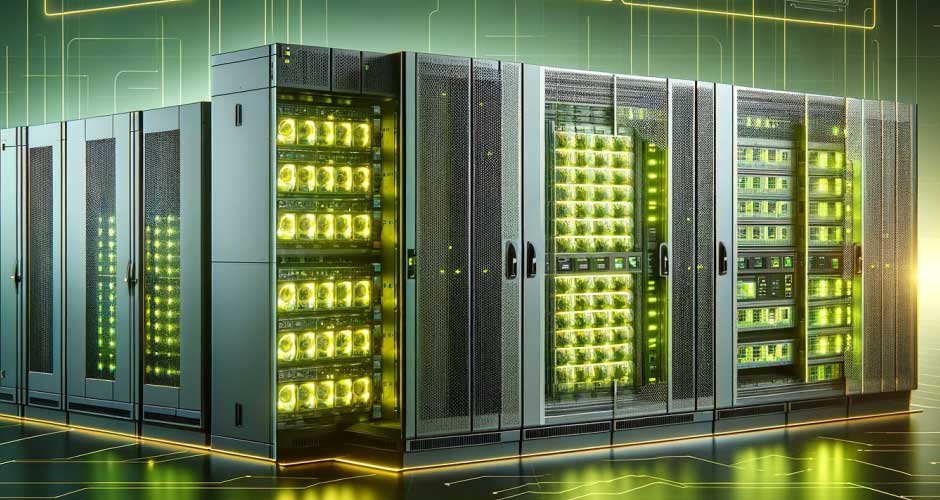
When technology has become an enormous part of personal and professional lifestyles, a constant power source is more critical than ever. Single Phase UPS (Uninterruptible Power Supply) is the best way to protect electronic devices from power supply failure. This article will guide you through the top benefits of single-phase UPS systems and their application in different environments. With the growing dependency developing in society through digital means, so does the necessity of systems able to negotiate and deal with these risks, which encompasses failure, meaning single phase UPS is the panic button for many. More than just productivity, ensuring that devices are up and running can lead to operational uptime and business continuity, whether in a regular daily work environment or even during an electrically unstable state.
What Is a Single Phase UPS?
A single phase UPS serves as a power backup system that ensures an uninterrupted power supply to the respective connected devices in cases of a power cut off or voltage variations. This single-phase electrical device takes an incoming AC power supply. It converts it to DC and then back to a clean sine wave AC output, which allows the converter to provide true online double conversion in tower form. It is most helpful for residential areas, small businesses, and other industrial applications. Single-phase UPS Systems provide instant power assistance, saving data and equipment loss, which can result in a costly shutdown. In addition to that, it is low-profile and easily installable, so enterprises with space constraints or limited technical expertise can still have access to available protection.
Key Benefits of Single Phase UPS Systems
Cost-Effective Solution
Because modern society has been far using single-phase UPS, they are more available these days and less expensive than a three-phase (how many people prefer to choose who lives in homes or at small offices). These are also cost-effective and ideal for environments with moderate power demand due to relatively low initial investment costs. This cost-effectiveness puts these life-saving backup power systems within reach of business and home users, giving secure protection to critical devices during energy cuts.
Simplicity and Ease of Installation
In contrast, single-phase UPS systems have a simple design that anyone can install or configure with relative ease. This simplicity eliminates complex integration costs, and non-technical users can get started with a minimal learning curve. Furthermore, some models provide extremely intuitive interfaces that allow for easy manipulation; even people without much computer knowledge can administer their backup power systems.
Compact Design
Single phase UPS systems, some of which are notably smaller and lighter than 3 phase models, are perfect for environments with limited space. Their compact size makes them ideal for home installation, office spaces, and small retail areas, without adding unnecessary bulk. This compact design provides an efficient solution for confined spaces that require power backup.
Adequate Protection for Sensitive Equipment
Single-phase UPS systems provide conditioned power; they are considered best for protecting against disturbances like noisy AC or load changes, which can damage sensitive end equipment. Power anomalies can significantly impair computers, networking equipment, and home entertainment systems. A UPS ensures that even when the primary power source is inconsistent, your devices can still run as intended while being shielded from surges.
Backup Power During Outages
One key feature is that the single-phase UPS offers backup power during long-duration, high-capacity outages. This is a great feature for saving work, cleanly shutting down devices, and avoiding significant data loss. The UPS can keep everything alive for a few minutes to several hours, depending on how many devices you have and what draws the energy load from your network closet.
Scalability
Single-phase UPS solutions offer outstanding flexibility, which is ideal for businesses that have to scale their power capacity up or add new functionality. This allows for considerable flexibility as it can then be minimally adapted to meet different requirements without having to do a full upgrade. With customised power management solutions, these systems form an important element of the business’s placement for future expansion and transformation.
Applications of Single-Phase UPS Systems
This flexibility is why single-phase UPS systems can be discovered in various settings.
- Home Use: Protects personal PCs, gaming consoles, and home entertainment systems.
- Small Businesses: Keeping POS systems, servers and other crucial components operational,
- Medical Facilities: Supporting stable power devices for essential medical equipment.
- Education: Backup to computers and projectors in schools and universities.
Choosing the Right Single Phase UPS
Single-phase UPS systems are crucial for reducing costs if you rely on a generator for backup power.
- Power Capacity: The total wattage of the devices you must protect; match an appropriate UPS.
- Backup Time: Consider the period you want power supplied to your devices during blackouts and choose a model that can cater to that requirement.
- Features: This may include an LCD status display and monitoring connectivity.
- Brand Reputation: Investigate the manufacturers with a proven history of delivering quality and reliability.
Conclusion
If you plan to prevent power disruptions for electronic devices, single phase-ups are your best buddy. Less expensive, easier to set up and power-protecting sensitive equipment, a single phase UPS provides indispensable assistance for homes and small businesses. Investing in a dependable single-phase UPS will help users preserve productivity and protect their precious data during unexpected power outages. These systems also maintain data integrity and offer peace of mind, enabling crucial processes to run normally. In addition, with companies increasingly adopting digital solutions, impactful battery backup becomes a strategic requirement to retain competitive edges and superior customer trust.





